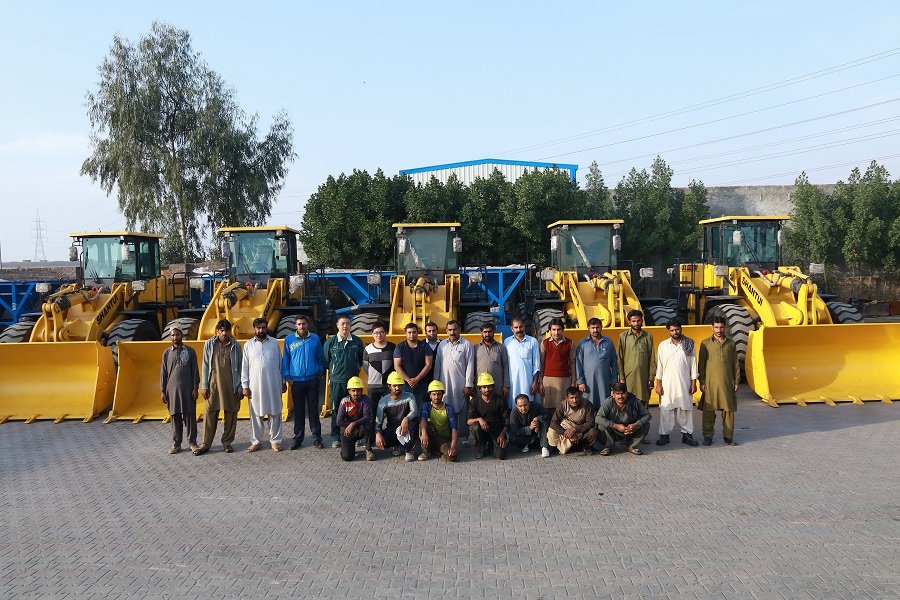The construction of modern housing projects requires more than just skilled labor and quality materials. Power supply is at the core of every stage of development, from the first excavation to the finishing touches. In many cases, reliance on the main grid can be risky due to outages, limitations in infrastructure, or delays in extending power lines to new sites. This is where portable industrial power stations step in, ensuring that work continues without interruption.
Meeting Energy Demands On Site
Construction sites are high-energy environments. Heavy machinery, power tools, lighting, and even temporary offices all rely on a steady power source. Without reliable electricity, progress can slow down or stop altogether, leading to delays that cost both time and money. Portable industrial power stations provide the needed flexibility by delivering high-capacity energy wherever it’s required. Unlike smaller generators, these stations are designed to handle industrial-scale demands, making them ideal for large housing projects.
Reducing Project Delays
One of the most significant challenges in housing development is meeting deadlines. Unexpected setbacks like power cuts or limited access to grid power can derail carefully planned schedules. Portable industrial power stations reduce these risks by acting as the backbone of the site’s energy supply. They provide immediate, on-demand power, ensuring that construction teams don’t face unnecessary stoppages. This reliability allows developers to stick to timelines and deliver housing projects on schedule, which is critical in competitive markets.
Enhancing Site Safety
A reliable electricity supply is essential for maintaining the security of worksites, as safety is always a top priority in the construction industry. Proper lighting reduces accidents during night shifts or in low-visibility conditions. Consistent power also ensures safety systems such as alarms, emergency tools, and surveillance equipment remain operational at all times. Portable power stations eliminate the uncertainty associated with inconsistent grid power, contributing to safer working environments.
Cost Efficiency In The Long Run
While the upfront investment in portable industrial power stations may seem substantial, the long-term benefits outweigh the costs. Construction delays due to power shortages often lead to higher expenses in labor, materials, and extended project management. Having an Industrial Power Station ensures smoother workflows, which helps reduce wasted resources and avoid financial penalties tied to project delays. Additionally, many modern portable stations are designed with fuel efficiency in mind, cutting operational costs compared to traditional generators.
Supporting Remote Or Off-Grid Projects
Many housing developments are planned in new or remote areas where the electrical grid has not yet been extended. Waiting for grid connections could mean significant delays before construction even begins. Portable industrial power stations provide an immediate solution, supplying energy without dependence on external infrastructure. This flexibility opens opportunities for developers to take on projects in previously challenging locations, giving them a competitive advantage.
Adaptability For Different Project Phases
Another advantage of portable industrial power stations is their adaptability across the different phases of construction. Early stages, such as excavation and foundation laying, require heavy machinery, while later stages might rely more on lighting, finishing tools, and climate control for interiors. A single power station can adapt to these varying demands, scaling its output as the project moves forward. This versatility eliminates the need for multiple power solutions, making operations more streamlined. For large-scale housing developments that require heavy-duty and uninterrupted energy supply, a Portable Power Station 5000w: offers the ideal balance of reliability and capacity to keep machinery and tools running smoothly.
Sustainability And Cleaner Energy Options
Numerous portable industrial power stations are currently being developed to mitigate emissions and promote healthier energy practices, as sustainability has emerged as a critical concern in the construction industry. Hybrid models, which combine traditional fuel with renewable sources like solar, are becoming more common. These advancements help companies align with environmental standards while reducing their carbon footprint. By adopting such solutions, housing projects not only maintain progress but also demonstrate a commitment to responsible construction practices.
A Case For Reliability In Housing Development
Every successful housing project depends on predictable, uninterrupted workflows. Portable industrial power stations offer reliability that translates directly into project success. Developers can mitigate risks associated with power shortages, avoid unnecessary downtime, and ensure that labor, machinery, and resources are used efficiently. In a sector where deadlines, budgets, and safety standards are non-negotiable, these stations have become a vital tool for progress.
Conclusion
Housing projects thrive on momentum. Any interruption in energy supply can cause a chain reaction of delays, safety concerns, and financial losses. Portable industrial power stations solve these problems by delivering consistent, flexible, and scalable energy solutions. From meeting heavy energy demands and supporting remote locations to improving safety and enabling sustainable practices, they play an indispensable role in keeping projects on track.



